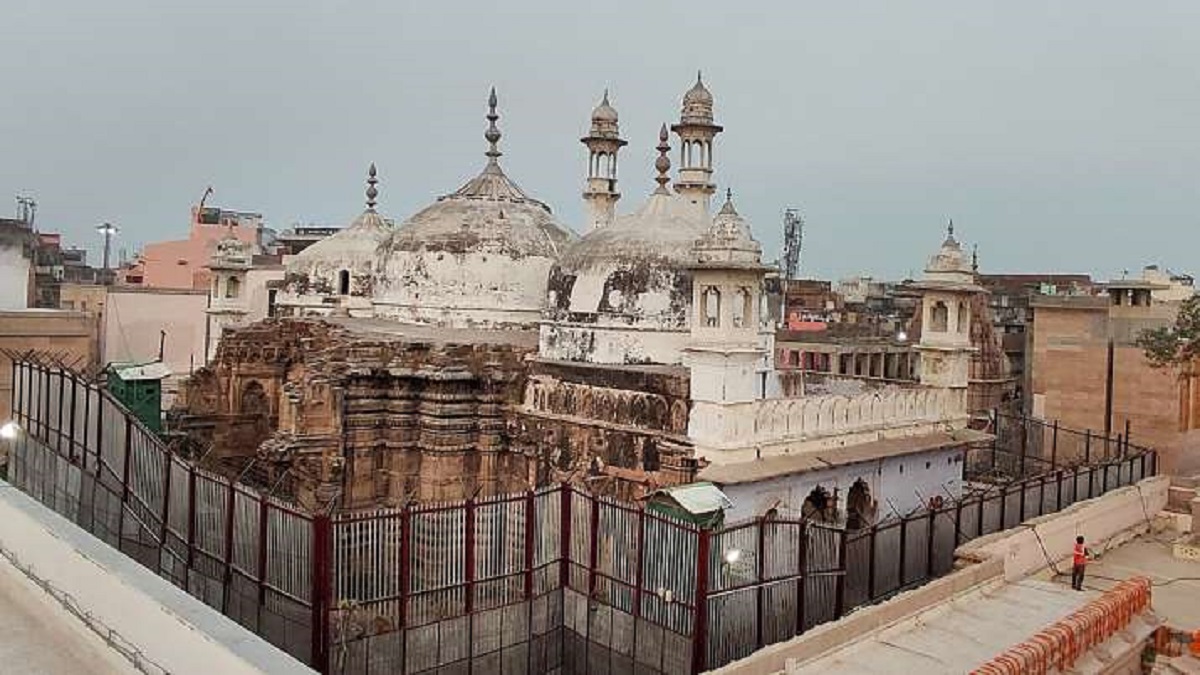
The court of district judge Ajay Krishna Vishvesha is expected to pronounce its judgment in the matter pertaining to the maintainability of the Shringar Gauri – Gyanvapi case today. Basically, the court is expected to rule if the suit brought up by Hindu women, who want to offer prayers at the temple of Shringar Gauri on the premises of the Gyanvapi mosque that stands adjacent to the Kashi Vishwanath temple, is maintainable under Order 7 Rule 11 of the Civil Procedure Code.
What is Order 7 Rule 11?
According to Order 7, Rule 11 of the Civil Procedure Code (CPC), a court can reject a plaint:
(a) where it does not disclose a cause of action;
(b) where the relief claimed is undervalued, and the plaintiff, on being required by the Court to correct the valuation within a time to be fixed by the Court, fails to do so;
(c) where the relief claimed is properly valued, but the plaint is returned upon paper insufficiently stamped, and the plaintiff, on being required by the Court to supply the requisite stamp-paper within a time to be fixed by the Court, fails to do so;
(d) where the suit appears from the statement in the plaint to be barred by any law.
Defendant’s stand
On July 12, 2022, Anjuman Intezamia Masjid (AIM) which is the mosque management authority, and the defendant in the case, finished presenting their arguments against the maintainability of the suit under Order 7, Rule 11 (d) of the Civil Procedure Code (CPC).
According to S M Yasin, general secretary of AIM, “This case cannot go on. The matter has been settled when it comes to religious structures from before 1947. Moreover, the Masjid is Waqf property.”
Yasin was referring to the Places of Worship Act according to which the character of a place of worship cannot be changed from what it was on Independence Day i.e August 15, 1947. Thus, AIM contends that the provisions of Order 7 Rule 11 (d) are applicable to this case.
Petitioners clarify they only want to offer prayers where they took place before 1993
On July 13, 2022, four women petitioners in the Shringar Gauri case related to the Gyanvapi mosque have, through their lawyer, clarified before the court that they have neither sought possession of the mosque property, nor do they want the right to worship inside it; they only want to conduct prayers where they took place till 1993.
Hearings concluded on August 24.
Heavy police deployment in and around Varanasi
In light of the upcoming judgment and its communally sensitive nature, there is heavy security deployment in Varanasi. Prohibitory orders have been imposed under Section 144, and police patrolling is on.
In a video address on Twitter on Sunday, Varanasi Police Commissioner Satish Bharadwaj said, “In light of the upcoming judgment, we held a meeting with all SHOs, ACPs, Additional DCPs and DCPs. Section 144 has been imposed. There is adequate force deployment everywhere, especially in mixed population areas.”
Police also visited the court premises with sniffer dogs and a bomb detection squad on Sunday, and also checked the CCTVs at the venue. Police are maintaining watch not just in Varanasi city, but also nearby rural areas:
पुलिस अधीक्षक वाराणसी ग्रामीण के निर्देशन में शांति एवं कानून-व्यवस्था बनाये रखने के दृष्टिगत @VaranasiRural पुलिस द्वारा प्रमुख चौराहों, बाजारों व अन्य सार्वजनिक स्थानों पर #पैदल_गश्त एवं संदिग्ध व्यक्ति/वाहन की चेकिंग की जा रही है। pic.twitter.com/fxxWdEFG9M
— Varanasi Rural Police (@VaranasiRural) September 11, 2022
Brief background of the case
Readers would recall that in August 2021, five Hindu women – Rakhi Singh, Laxmi Devi, Sita Sahu, Manju Vyas and Rekha Pathak, who are all Varanasi residents – had moved the Civil Court (Senior Division), demanding that the Maa Shringar Gauri Temple be reopened, and people be allowed to offer prayers before the idols that are still kept there. Anjuman Intezamia Masjid (AIM), which is the mosque management authority, is the defendant in the case.
On April 8, 2022, Civil Judge (Senior Division), Varanasi, Ravi Kumar Diwakar had appointed Advocate Commissioner Ajai Kumar to carry out the survey and asked him to submit a report at the next hearing on May 10. The AIM opposed this, but their petition against the survey was dismissed by the Allahabad High Court on April 21. The lower court in Varanasi, on April 26, then again passed an order to carry out the survey.
The authorities began conducting the video survey on May 5, and AIM moved SC where it highlighted how the Places of Worship Act, 1991, prohibits changing the character of a place of worship from what it was on August 15, 1947. Thus, AIM said that the suit was not maintainable as per Order 7, Rule 11 (d) of the Civil Procedure Code (CPC).
The SC then transferred the case from the court of Civil Judge (Senior Division) Ravi Kumar Diwakar, who had originally ordered the survey, to the court of District Judge Ajay Krishna Vishvesha to decide upon the maintainability of the suit given Order 7, Rule 11.
Meanwhile, Rakhi Singh withdrew from the case.
Related:
Gyanvapi case: Has the mosque committee’s new lawyer backed out?
Gyanvapi case: Lawyer and family member of Hindu petitioner receives death threat
Gyanvapi case: SC to wait for Varanasi district court’s decision on suit maintainability
Gyanvapi case: Hindu petitioners submit that the mosque stands on land owned by Hindu deity